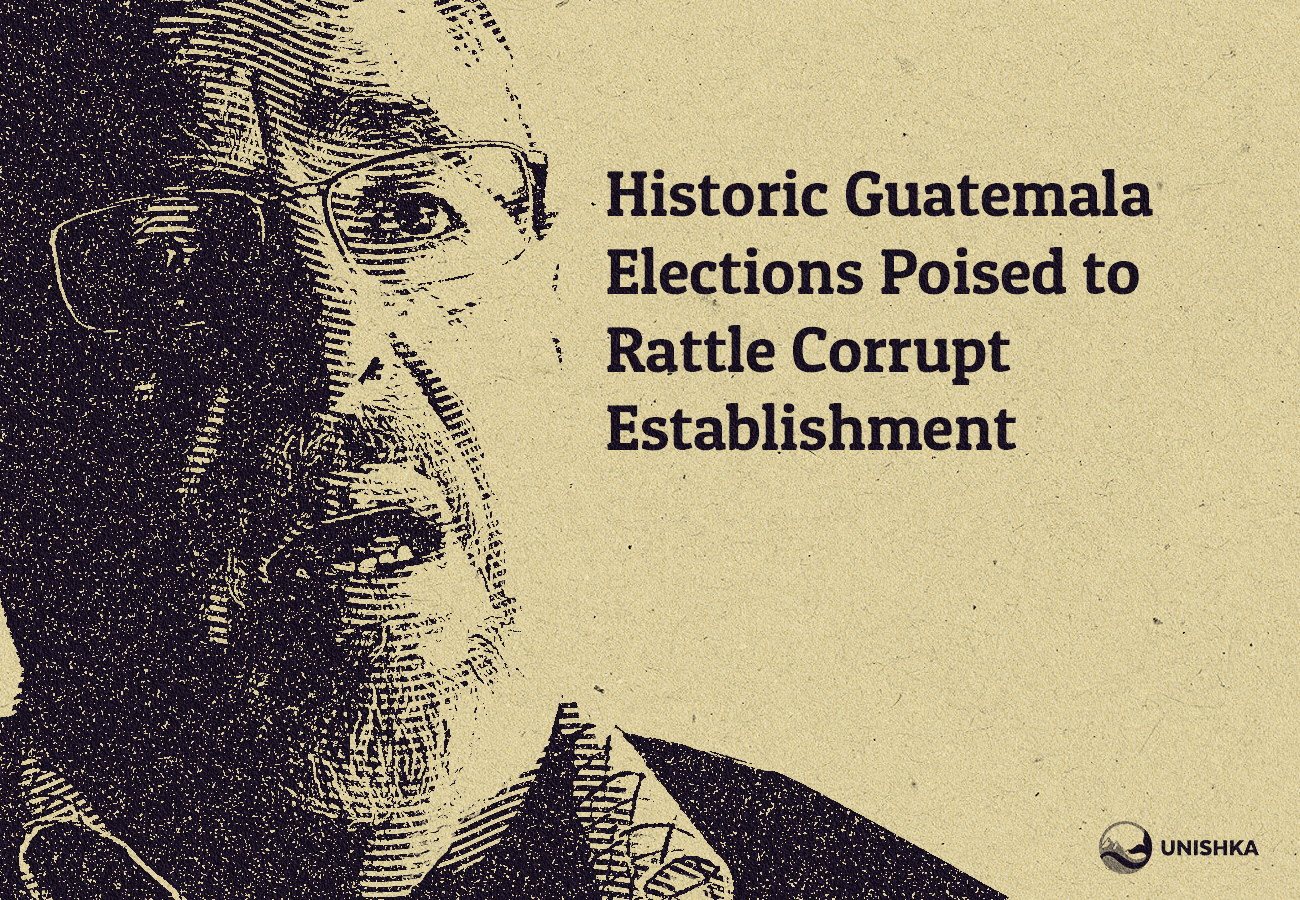
Historic Guatemala Elections Poised to Rattle Corrupt Establishment
27 June 2023 ( InsightCrime )
It was around 9 p.m. on June 25 when amid the bustling of TV crews and politicians gathered at a dystopian hotel on the outskirts of Guatemala City, it became apparent the country’s presidential election had gone off script.
Against all odds, following a campaign overshadowed by impunity, in an election where all of the candidates who had been leading the polls had ties to corruption networks, and with the country’s democratic institutions heavily penetrated by political mafias, an outsider candidate whose chances had been all but written off looked set for a historic upset.
Just after 3 a.m. the next morning, the upset was confirmed. Bernardo Arévalo, the son of a former president running with center-left party Movimiento Semilla, roughly translated as the Seed Movement, had defied all expectations by booking a place in the August 20 presidential run-off, securing 11.8% of the vote. He will face Sandra Torres of the National Unity of Hope (Unidad Nacional de la Esperanza – UNE), a repeat presidential candidate who, with a 15.8% share of votes, reached the second round for the third consecutive election.
Arévalo’s success capped a night of surprises, which saw Guatemalans deliver an overwhelming rebuke to the corrupt conservative establishment that has dominated politics in the country for decades.
Pre-election polls had predicted a run-off between Torres and either Edmond Mulet (Cabal) or Zury Ríos (Valor). All three are long-time politicians whose parties have direct or indirect links to corrupt elites.
But voters abandoned Mulet and Ríos — both conservatives — who placed fifth and sixth, respectively. Arévalo, meanwhile, comfortably outperformed the final poll published before the elections, which had given him just 2% of the vote.
Manuel Conde of Vamos came closest to reeling in Arévalo, but stalled on 7.8%.
Vamos is the party of sitting President Alejandro Giammattei (2020-present), whose administration has been embroiled in a series of corruption scandals. The Giammattei government has also been at the center of efforts to consolidate power across key branches of the state via alliances with other political factions, particularly in Congress. Local press have coined the alliance the Pacto de Corruptos, or corrupt pact.
The results marked a historic rejection of traditional politics. Deeply-entrenched corruption networks have tightened their stranglehold over Guatemala’s state institutions in recent years, using political power to facilitate corruption and drive opponents into exile. Before the elections, electoral authorities had incensed many voters by disqualifying a series of non-aligned candidates under dubious circumstances.
Just below two-thirds of the electorate either abstained (40%), voted blank (7%), or spoiled their ballot (17.4%), highlighting voter discontent.
“The disqualification of other anti-establishment options fueled the increase in null and blank votes, which ultimately worked in Semilla’s favor,” said Édgar Ortiz, an expert in Guatemalan constitutional law.
“Semilla performed exceptionally well due to being one of the few parties in clear opposition to the current administration,” Ortiz added. “They also effectively tapped into the anti-corruption sentiment, capturing a vote that no other party actively pursued.”
Arévalo campaigned on an anti-corruption platform, and Semilla is one of the few parties with a track record of voting against the government in Congress. The party, founded in 2015 in the wake of mass protests against corruption, is home to social activists and academics that have publicly supported efforts to reduce impunity in Guatemala.
The party’s 2019 presidential candidate, Thelma Aldana, the country’s former Attorney General who led a series of high-profile corruption cases alongside a now-defunct anti-corruption commission backed by the United Nations, was controversially disqualified before those elections.
Aldana is among a group of exiled Guatemalans that many voters associate with the fight against impunity. Arévalo has pledged to bring back exiled prosecutors and judges targeted by a state-led crackdown as part of Semilla’s plans to combat graft.
“Semilla is the option for people who reject the entire corrupt system,” said Kevin Sánchez, a party coordinator in Guatemala City, at an impromptu rally in Guatemala City’s constitutional square the day after the vote. “Now the objective is winning the presidency.”
But winning the second round will require beating one of Guatemala’s most enduring political parties, the National Unity of Hope (UNE). UNE boasts a formidable electoral apparatus that, according to Guatemalan prosecutors, has previously benefited from illicit funds.
UNE leader Sandra Torres lost her last two contests in the presidential runoff, in 2015 and 2019. But both she and her party have aligned with the congressional alliance built around Vamos and Giammattei in recent years.
Vamos could prove a powerful ally for Torres. The party delivered a strong first-round performance, winning the largest bloc in Congress (39 seats) and 132 mayorships around the country.
Vamos’ electoral strategy appears to center on leveraging the party’s access to state resources to attract mayors and prominent regional politicians capable of drumming up votes throughout the country. Some of these actors had alleged ties to the drug trade, according to an InSight Crime investigation. It remains to be seen whether Vamos, or other factions of the conservative elite, will throw their weight and resources behind Torres for the second round.
SEE THE ORIGINAL ARTICLE


